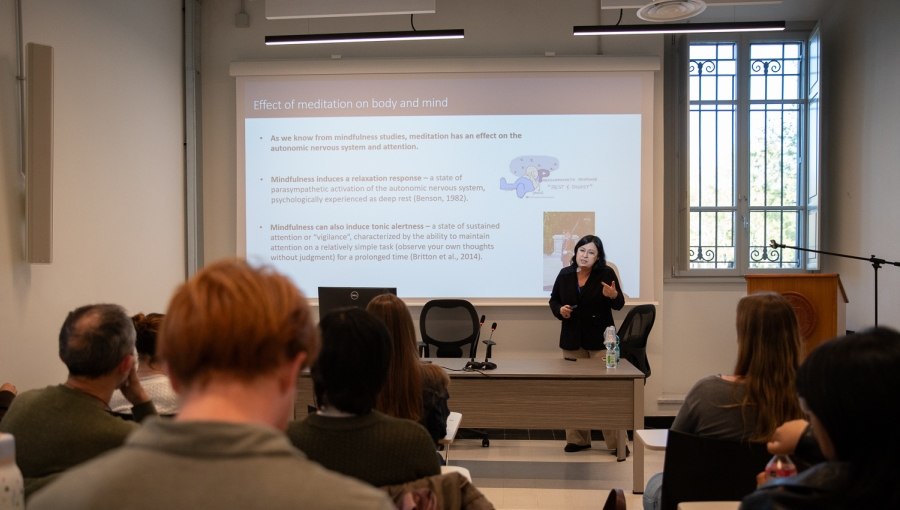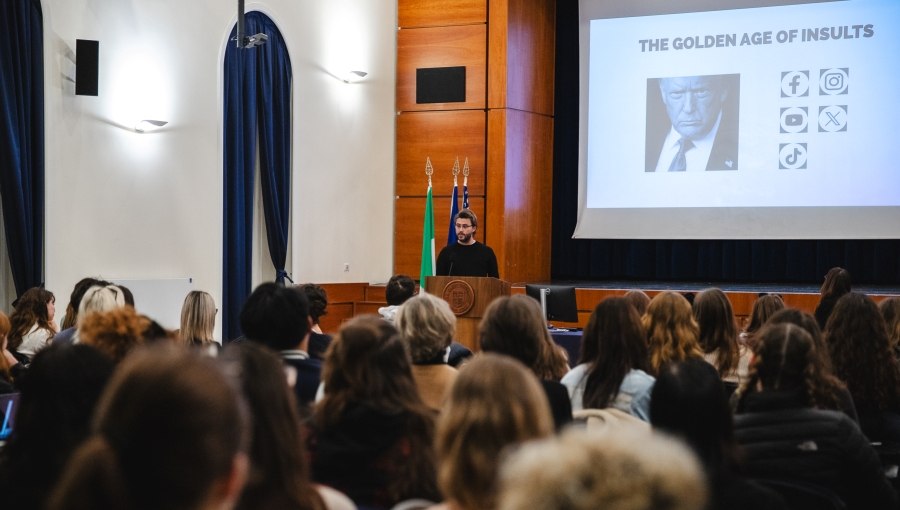Professor Bruno Galantucci Presents Research on Human Communication
Bruno Galantucci, Associate Professor of Psychology at John Cabot University, was recently invited to speak at two international scientific conferences. On October 19, he spoke at the 7th Peripatetic Conference—an event sponsored by the University of Warsaw (Poland)—while on October 31 he spoke at a workshop entitled Interrelations Among Different Forms of Human Communication–an event sponsored by Linnaeus University (Sweden).

Bruno Galantucci
At these events, Galantucci delivered the lecture “Satisficing Trumps Optimizing in Human Communication,” an overview of his most recent research on human communication. The term “satisficing” means pursuing the minimum satisfactory condition or outcome.
According to Galantucci, the dominant models of human communication all share the assumption that, when people communicate, they aim to optimize the informational transactions they perform. Galantucci presented three studies suggesting that the assumption might reflect an unrealistic idealization.
The first two studies focused on spontaneous conversations over instant messaging. In “Do We Notice when Communication Goes Awry? An Investigation of People’s Sensitivity to Coherence in Spontaneous Conversation,“ Galantucci and his colleagues crossed the conversations of two pairs of participants a number of times and found that it is not uncommon for people to not notice the crossings. The second study, “(In)sensitivity to incoherence in human communication,” replicated the first but with odd messages Galantucci and his colleagues created and inserted. Again, people did not notice the odd insertions, even when they contradicted basic information they had (e.g., the message referred to a participant as “a man” when she was a woman and this was well known to the conversational partner).
In the third study, “Content deafness: When coherent talk just doesn’t matter,” Galantucci and his colleagues raised the stakes in two ways. First, they focused on spontaneous face-to-face conversations with a lab member who acted as a naïve participant. Second, the odd message inserted into the conversation by the lab member was “colorless green ideas sleep furiously,” a sentence that was bound to be incoherent in any conversational context. Again, it was not uncommon for people to not notice the incoherence.
Galantucci concluded by arguing that the results of these studies suggest that human communication—much as human cognition—prefers satisficing over optimizing and, precisely for this reason, it constantly lives on the brink of failure.
In Spring 2019, Professor Galantucci will be teaching PS 101 General Psychology and PS 307 Cognitive Psychology.





